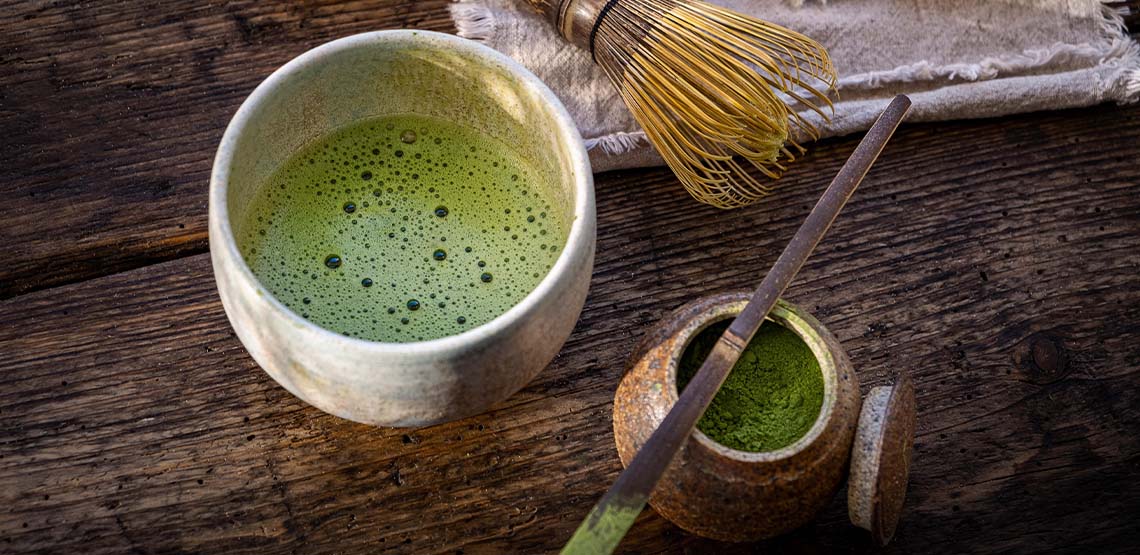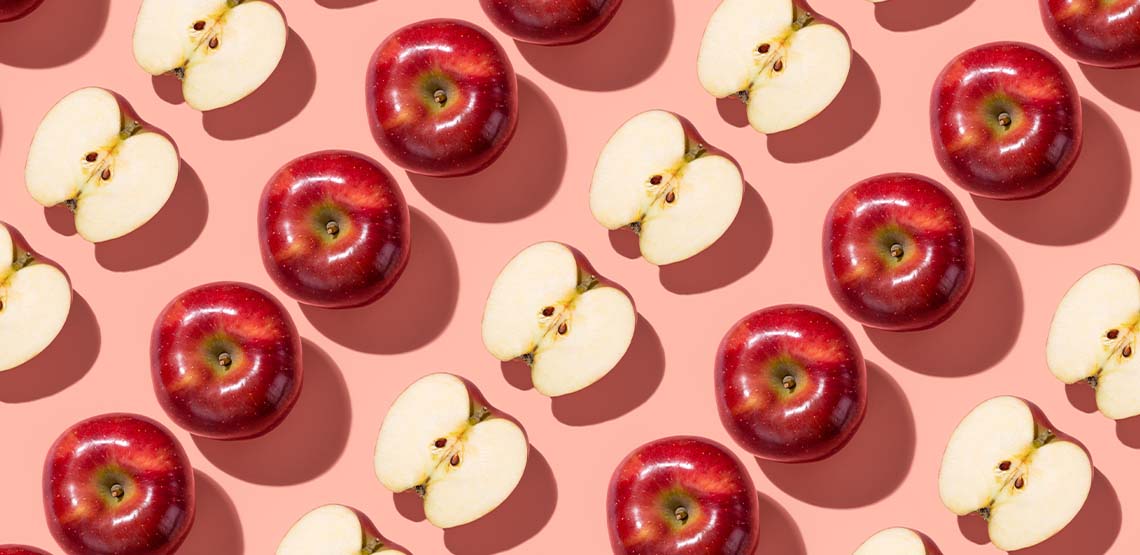Is Matcha Good for You?
Matcha tea has a long tradition in Chinese culture, dating back to the Tang Dynasty between the 7th and 10th centuries. Brought to Japan in the 1100s, this vibrant and healing green tea is becoming increasingly popular in the western world, and for a good reason! So, is matcha good for you, and how?
Today we are going to look at what matcha actually is, all the great ways you can use it in the kitchen and the many benefits you will receive from adding it to your routine. Read on for all the details!
What is Matcha Tea?
If you have been to a trendy cafe any time in the last decade, you have likely seen matcha everywhere, from lattes to shots to desserts, but what is matcha? Well, it comes from the same camellia sinensis plant as regular green tea. What makes it different is how it is grown and processed to produce the most flavorful and nutrient-dense green tea available.
To produce the brilliant green hue that characterizes matcha tea, the farmers who grow it cover the plants about 20 to 30 days before harvest. Covering the plants forces them to produce more chlorophyll, the compound responsible for the bright green color and many health benefits. This process also increases the amino acid content of the tea.
When it comes time to process the matcha, the stems and veins of the plant are removed, and the whole leaf is ground up into a fine powder. Unlike regular green tea, which is steeped and then the leaves discarded, you consume the entire leaf and all the nutrients it contains when you drink matcha tea.
Health Benefits of Matcha Tea
Here are four health benefits of matcha tea:
1. High in Antioxidants
Free radicals are a potential trigger of inflammation in the body, and antioxidants help stabilize free radicals to prevent this cellular damage. This green tea is packed with antioxidants called catechins. One study found that when compared to the antioxidants in regular green tea, matcha contained from 3 to 137 times as many catechins depending on the type! That means you can drink much less matcha and receive way more benefits per sip!
2. May Protect Liver Health
Your liver is responsible for hundreds of vital functions in the body. Unfortunately, modern diets high in processed foods, high fructose corn syrup and alcohol can cause damage to this vital organ. That's where this beverage comes in!
Thanks to its high concentration of antioxidants and amino acids, studies have found that concentrated green tea significantly decreased levels of liver enzymes, which are an indicator of liver damage, in people with non-alcoholic fatty liver disease.
An animal study also found that giving diabetics rats matcha tea for 16 weeks helped protect their livers and kidneys from damage.
3. Can Help Support Brain Function
Since green tea is caffeinated, it should come as no surprise that matcha is a more concentrated source of this compound. Caffeine can help improve brain function and memory performance. The one downside of caffeine is that you can experience an energy crash after consuming it.
That's where matcha really shines. It contains an interesting compound called L-theanine that helps balance out the spike in alertness followed by the dreaded crash that you can experience when consuming caffeine. That means you get all the benefits of increased alertness and focus without the downside!
L-theanine is also great for folks who struggle to relax since it can increase the frequency of soothing alpha waves in the brain without causing drowsiness.
4. May Support a Healthy Heart
Heart disease is the number one cause of death in the U.S., according to the CDC. While many risk factors can contribute to this condition, what you eat and drink can play a role in prevention.
Since matcha is a more concentrated form of green tea, it stands to reason that the health benefits observed in those who drink it regularly would apply to those who drink matcha. In some animal studies, this green tea has been shown to lower levels of fat in the blood.
Another risk factor for heart disease is the oxidation of LDL cholesterol molecules. As you have already seen, matcha is packed with antioxidants. Studies have shown that matcha can help prevent LDL oxidation. Observational studies, which don't always equate to causation, have also shown that people who drink the most green tea have lower heart disease and stroke rates.
While drinking this tea isn't a guarantee against preventing heart disease, it is one tool you can add to your heart-healthy living plan to set you up for success.
How to Use Matcha Tea
Thanks to its impressive health benefits, I love using it in various ways in the kitchen. A few options you can try include:
- Plain matcha with hot water. This method is how people would traditionally consume it.
- Mixed with your favorite milk or dairy alternative for a matcha latte.
- Added to baked goods for a bright green color and earthy taste.
- Used in your favorite energy ball recipe.
- Try adding a scoop to your smoothie for an extra boost of energy and nutrition.
As you can see, this tea is an incredibly versatile kitchen staple loaded with health benefits, making it the perfect addition to your pantry. What are some ways you like to enjoy your matcha?
Article Resources
- PubMed.gov (Determination of catechins in matcha green tea by micellar electrokinetic chromatography)
- International Journal of Preventive Medicine (The Effect of Green Tea Extract Supplementation on Liver Enzymes in Patients with Nonalcoholic Fatty Liver Disease)
- PubMed.gov (Matcha, a powdered green tea, ameliorates the progression of renal and hepatic damage in type 2 diabetic OLETF rats)
- PubMed.gov (The effect of caffeine on cognitive task performance and motor fatigue)
- Frontiers in Psychology (Caffeine Enhances Memory Performance in Young Adults during Their Non-optimal Time of Day)
- PubMed.gov (A double-blind, placebo-controlled study evaluating the effects of caffeine and L-theanine both alone and in combination on cerebral blood flow, cognition and mood)
- PubMed.gov (L-theanine, a natural constituent in tea, and its effect on mental state)
- CDC (Leading Causes of Death)
- PubMed.gov (The effects of the aqueous extract and residue of Matcha on the antioxidant status and lipid and glucose levels in mice fed a high-fat diet)
- PubMed.gov (Influence of green tea and its three major components upon low-density lipoprotein oxidation)
- PubMed.gov (Catechin intake might explain the inverse relation between tea consumption and ischemic heart disease: the Zutphen Elderly Study)
- PubMed.gov (Green and black tea consumption and risk of stroke: a meta-analysis)


